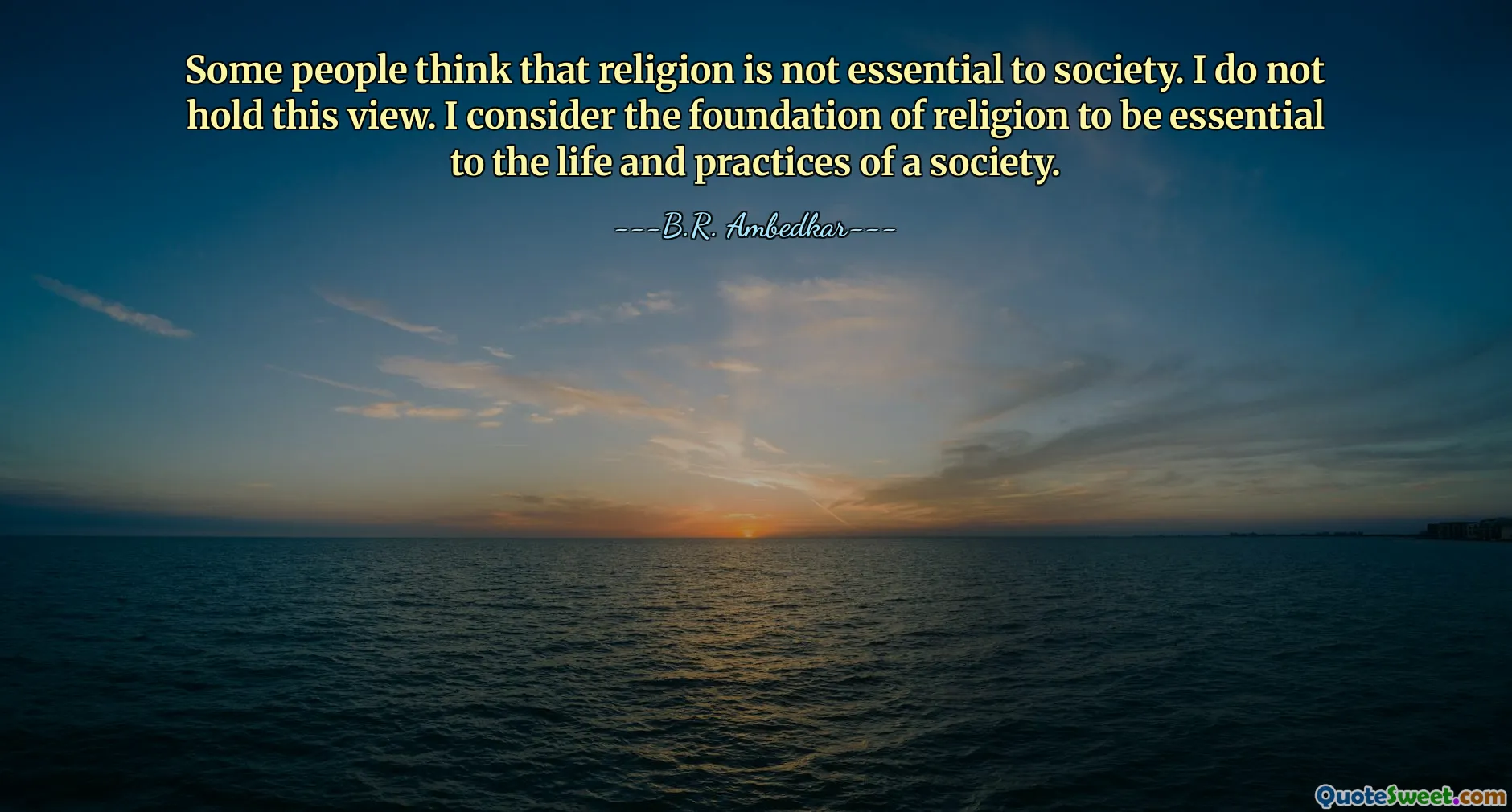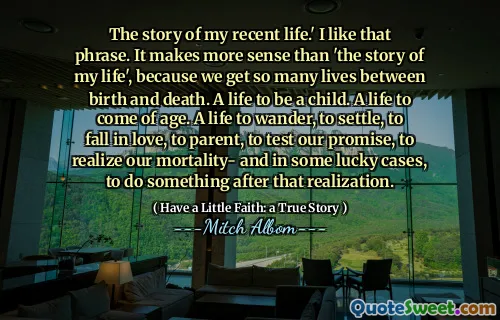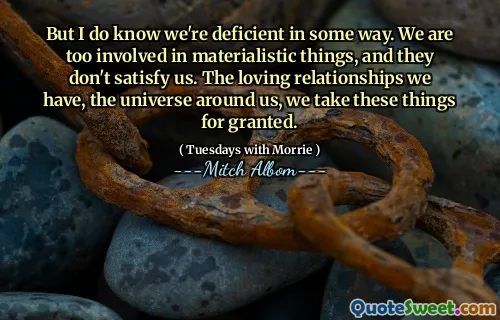
Some people think that religion is not essential to society. I do not hold this view. I consider the foundation of religion to be essential to the life and practices of a society.
This quote reveals a perspective that elevates the role of religion as a foundational element in shaping society. In reflecting on this, it is important to understand the multifaceted role religion has played throughout human history—not just as a system of beliefs but as an institution that influences moral values, social cohesion, and cultural traditions. From this standpoint, religion can be seen as providing a framework for shared meaning and ethical guidance, which can be crucial for maintaining order and encouraging collective responsibility within a community.
However, this reflection also prompts a consideration of the diversity of modern societies where secularism and pluralism are prevalent. The idea that religion is essential might be challenged in contexts where non-religious frameworks of ethics and law adequately sustain societal functions. Additionally, the interpretation of what religion means and how it operates can vary significantly, sometimes leading to division rather than cohesion.
Despite these complexities, the quote encourages a recognition of the historical and ongoing influence religion has on social practices and institutions. It invites an exploration of how foundational beliefs, ritual practices, and the moral codes derived from religion contribute to the life of a society—providing a sense of identity, continuity, and collective values. Whether one agrees or disagrees, the assertion underscores the profound impact religion can have on the fabric of society, serving as both a personal compass and a unifying social force.











